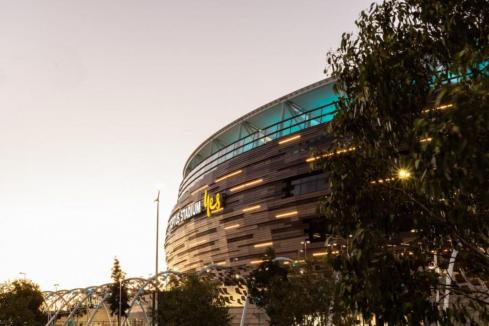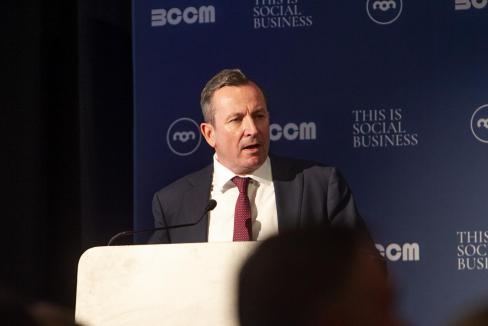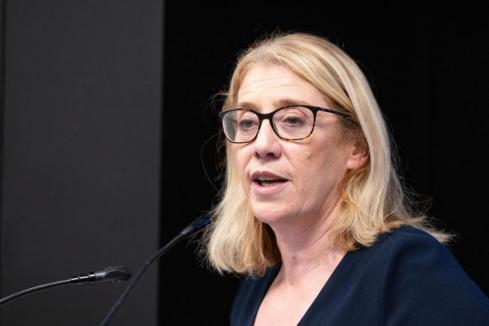It’s one thing to call for transparency when in opposition, but another altogether to provide full accountability when in government.


As the McGowan government prepares to finally open the trouble-plagued $1.2 billion Perth Children’s Hospital in mid-May, it is nervously awaiting a report on the future of the partially stalled Forrestfield-Airport Rail Link.
Both projects were inherited from the Barnett Liberal-National government.
The hospital has been a construction basket case. The original completion date was 2014, before one problem after another caused successive planned opening dates to be revised.
The $1.8 billion rail link, on the other hand, was going well, we were told, until the disclosure on March 19 that work on part of the project had stopped. Not the day before mind you, it had stopped on February 14.
And how did we find that out? Not from a government announcement that work on this key rail extension had struck problems, but courtesy of the 6PR Rumour File.
According to the Transport Minister Rita Saffioti, the cause of the hold up was the discovery of two ‘sinkholes’ in the earth above the rail tunnel, 300 metres from the airport station site.
Understandably the Liberals were keen to pursue the issue next day in parliament during question time, with deputy Liberal leader Liza Harvey noting that Ms Saffioti had hosted a media tour of the tunnel several days after work had stopped.
Ms Harvey wanted to know when the minister had become aware of the problem and why she hadn’t been open and accountable. Why had she withheld that information on a project that was now part of Labor’s showpiece Metronet plan?
Ms Saffioti revealed she had been aware of the stoppage about three days before the media tour, and had sat on it for five weeks. She declined to respond to the question about ‘withholding’ information, but did reveal some of the contents of the ‘project definition plan’ prepared under the previous government, which she claimed it had refused to make public.
“There are over 60 geotechnical risks and construction hazards that could affect construction,” she said, paraphrasing the report. “The key risks identified include excessive ground movement beyond acceptable levels at ground surface, and sinkhole formation at ground surface.”
Ms Saffioti said tunnelling in the Perth area was not easy, adding: “As we know, this is the first time we have been tunnelling through the Ascot formation and through those suburbs, and as a result there is a mixture of clay, sand and gravel.”
So it seems that neither side of politics is able to claim the high moral ground when it comes to accountability to taxpayers, who pay both for the project and the MPs’ wages.
And yet only a few weeks earlier, Premier Mark McGowan, who said he had not been told of the tunnel delays until the last minute, had effectively embraced the key findings of former under-treasurer John Langoulant’s Special Inquiry into Government Programs and Projects, which included the importance of governments being transparent.
The report noted the lack of trust in governments generally, which is compounded by an apparent fear within government and the wider public sector, about levelling with the public on what is actually going on – both the good and the bad.
“Providing Western Australian taxpayers with open, honest and complete information through continuous disclosure about government projects is a useful way to promote accountability and to build trust,’ Mr Langoulant said.
“Inevitably it brings criticism about decisions, debate and even unrest regarding costs and timeframes, and occasionally concerns about progress.
“Despite these potential negatives, transparency through continuous disclosure avoids the shock that the community can face when government finally informs the public of a significant problem on a major project after the problem has become apparent to those close to the project.”
Oppositions are strident in their calls for open government, and strong critics of the excuse of commercial confidentiality to withhold information.
Once in government, however, they quickly change their spots regarding the providing of details on how taxpayers’ money is being spent. Often their actions reflect strong recommendations for secrecy from senior public servants or advisers.
Question time, officially recorded in parliament’s Hansard as ‘Questions Without Notice’, is the opportunity for ministers to inform taxpayers on government decisions.
But former federal Liberal MP John Hyde suggests dryly that the sessions should be renamed ‘questions without answers’.
How right he is.
• The author provided editorial assistance to the Langoulant inquiry














